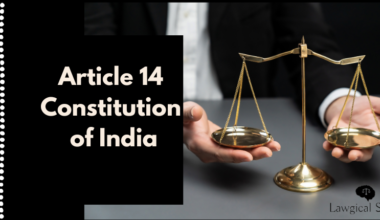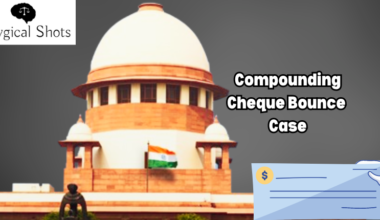It was Biology lecture in class 10, and the whole class was silent, not ready to make eye contact with anyone. The reason? Because the lecture was all about reproduction in males and females. While most of the teachers speed up for the reproduction chapter, there are a handful of them who explain biology as well as other aspects of sexual health. It all stops here, and nobody talks sexual unless it is a group of friends giggling on jokes or a couple who has already engaged in sexual intercourse with half baked knowledge. The taboo of not talking about sex makes it worse. The lack of knowledge attracts social as well as criminological issues which are hard to address. That is why, the Supreme Court batted for sex education time and again. Here, we have compiled some landmark decisions on sexual health education.
Supreme Court cases on Sex Education in Schools
X v. Principal Secretary, Health and Family Welfare Department, GNCTD (2022)
A recent case wherein apart from reproductive autonomy for women, the Supreme Court batted for sex education. The matter was decided by the Bench of Justice Dr. D.Y. Chandrachud, Justice AS Bopanna and Justice JB Pardiwala.
The Bench showed serious concern while expressing that “The absence of sexual health education in the country means that most adolescents are unaware of how the reproductive system functions as well as how contraceptive devices and methods may be deployed to prevent pregnancies. The taboos surrounding pre-marital sex prevent young adults from attempting to access contraceptives. The same taboos mean that young girls who have discovered the fact that they are pregnant are hesitant to reveal this to their parents or guardians, who play a crucial role in accessing medical assistance and intervention.”
Just Rights for Children Alliance v. S. Harish (2024)
A landmark judgment on child pornography, or rather say child sexual exploitative and abuse material (CSEAM). The matter was decided by the Bench of CJI DY Chandrachud and Justice JB Pardiwala. While the Supreme Court batted for sex education, the Bench further discussed the misconceptions surrounding the norm which limit the implementation and effectiveness. The Court pointed towards the conservative views of everyone, including teachers and parents that discussing sex is inappropriate, immoral, or embarrassing. The Court was of the opinion that such societal stigma creates a reluctance in openly discussing sexual health, which results in a significant knowledge gap among adolescents.
The Court further added that “One prevalent misconception is that sex education encourages promiscuity and irresponsible behaviour among youth.” The Court questioned the theories that spreading information on sexual health and contraception will enhance sexual activity among teenagers. The Bench relied upon the research that comprehensive sexual health education actually delays the onset of sexual activity and promotes safer practices among those who are sexually active. The Bench hinted towards State Governments resisting sex education due to the common belief that sex education is a Western concept which conflicts with traditional Indian values. The Court was wary of such opposition hindering the implementation of comprehensive and effective sexual health programs resulting in adolescents lacking precise information. This diverts the teenagers towards the internet, the source of unfiltered information, often misleading and a threshold towards unhealthy sexual behaviours.
The Supreme Court advocated for sex education while clarifying that it is not just the biological aspects of reproduction. The Court added that “Effective sex education encompasses a wide range of topics, including consent, healthy relationships, gender equality, and respect for diversity. Addressing these topics is crucial for reducing sexual violence and promoting gender equity. Positive age-appropriate sex education plays a critical role in preventing youth from engaging in harmful sexual behaviours, including the distribution, and viewing of CSEAM.”
Society for Enlightenment and Voluntary Action v. Union of India (2024)
The writ petition particularly focused on the menace of child marriage. However, the Court discussed in detail the right to sex education. The Bench consisted of CJI Dr. D.Y. Chandrachud, Justice JB Pardiwala and Justice Manoj Misra. While pointing towards the International scenario, the Supreme Court backed sex education as a mandatory. When it comes to child marriage, most of the times people focus upon the female and health risks associated with bearing a child at a tender age. However, the Supreme Court not only advocated for education on sexual health for minor girls but also for boys with the following reasoning:
“In context of child marriage, we have demonstrated the heightened risk of health complications to arise out of adolescent sex and childbearing. While girls married as children have to bear the consequences of this, they are not the only party to the sexual relation which causes negative health outcomes. Boys married at young age equally feel pressures associated with sexual performance. Often, the only resource available to them is their peer group. The performance of sexual activity is an avenue for men to exhibit their masculinity. Because of their tender mind and patriarchal notions of masculinity and sexual dominance, they are likely to fall into egregious misinformation by their peers and commit violence on their child brides. The issue of approaching boys in child marriage with care, compassion and affection is unfortunately lost in some mainstream discourse on child marriage. While girls are undoubtedly affected by child marriage disproportionately, we ought to also account for the tender minds of men who are forced into marriages as children.”
No Fundamental Right to Sex Education
It was back in 2005, a time when the Supreme Court denied Sex Education as a fundamental right. An NGO had approached the Apex Court pleading to make sex education a fundamental right, thereby including the same in School Curriculum. However, the Bench of Justice Ruma Pal and Justice AR Lakshmanan did not find the same convincing enough at the time.
However, we can see that things have changed a lot in more than 20 years. The Apex Court finds it inevitable not to include sexual health education in school curricula. While reproduction teaches how male and female organs function, the Supreme Court bats for sex education to further understand the other related aspects.








